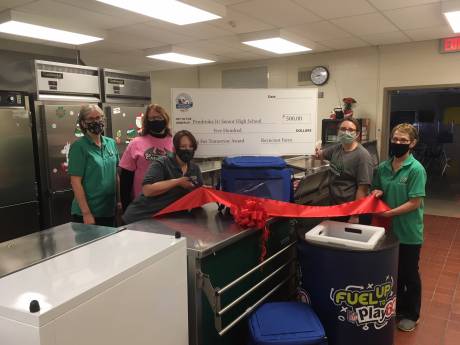Jacobs holds first meeting of Agricultural Advisory Committee
Press release:
Congressman Chris Jacobs (NY-27) held the first official meeting of his Agriculture Advisory Committee on Saturday, March 27th.
"In order for me to craft effective policy and ensure the long-term prosperity of our region's farmers and agribusinesses, it is critical to make sure they have a seat at the table," Jacobs said. "We had a productive introductory meeting and discussed many of the pressing issues facing Western New York agriculture. I look forward to continuing our work together."
"We are very pleased that Congressman Jacobs asked to be appointed to the House Agriculture Committee, and the agricultural community lauds Congressman Jacobs' in recognizing the diverse agriculture businesses in his district," said Maureen Torrey, of Torrey Farms Inc.
"His first meeting of his Agriculture Advisory Committee was a major success as all facets of agriculture from dairy, vegetables, apples, grapes, peaches, poultry, flowers, grain, greenhouse, family farms small and large, and agribusinesses had a chance to share trends and concerns about this major economic driver in his district with him."
"The Agriculture Advisory Committee gives all categories of agriculture a voice and representation in matters that directly impact our lives and our family's lives," said Stacie Rogers, of Rogers Dairy. "We appreciate Congressman Chris Jacobs for caring what that voice is and following through with what he says, I can't wait to continue that partnership and collaboration."
"As a farmer in Western New York, I am honored to be part of Congressman Jacobs' Agriculture Advisory Committee," said Jim Bittner, of Bittner Singer Orchards. "His willingness to serve on the House Agriculture Committee demonstrates his commitment to Western New York and the businesses that are its economic engine. Most recently, he supported the Farm Workforce Modernization Act, which will benefit every employee on my farm and those around us.
"Congressman Jacobs has also introduced a bill to allow dairy farms to participate in the H-2A Visa Program. This will have long-term benefits which will preserve our industry. As discussions continue, I appreciate his willingness to learn what is important to those who feed our citizens and how to support it through legislation."
"I believe the first meeting went very well, and I hope that the topics discussed give Rep. Jacobs a better understanding as to how crucial these issues are to agriculture," said Bruce Naas, of Naas Farms LLC. "Labor and infrastructure are just two of many ongoing concerns that affect how we can be competitive in today's global environment. I look forward to our next meeting."
“The Agriculture Advisory Committee is very promising, with participants from every aspect of the ag industry represented across NY-27," said John King, president – Niagara County Farm Bureau. "Congressman Jacobs will have a wealth of knowledge to pull from and very active members of the farming community to look to as a resource.
I look forward to providing the Congressman with updates and concerns that NY-27 farmer members have. I think committee’s like this are critical in regard to connecting our needs with Congress to ensure our family farms are represented appropriately going forward.”
The first meeting of the NY-27 Agriculture Advisory Committee was held virtually, and members discussed a wide range of topics and issues facing Western New York agriculture, including dairy and farm labor needs, trade enforcement, infrastructure and rural broadband development, and vaccine eligibility for farm workforces. Each member also provided a brief overview of their business and the commodities they represent.
The NY-27 Agriculture Advisory Committee is comprised of members from across the eight counties of the New York 27th District and includes stakeholders affiliated with farms, agribusiness, academia, and advocacy organizations. Its members produce a large variety of commodities including dairy, cash crops, vegetables, fruits, maple, and poultry.

